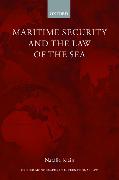- Start
- Philosophical Perspectives on Punishment
Philosophical Perspectives on Punishment
Angebote / Angebote:
Punishment, " writes J. E. McTaggart, " is pain and to inflict pain on any person obviously [requires] justification." But if the need to justify punishment is obvious, the manner of doing so is not. Philosophers have developed an array of diverse, often conflicting arguments to justify punitive institutions. Gertrude Ezorsky introduces this source book of significant historical and contemporary philosophical writings on problems of punishment with her own article, "The Ethics of Punishment." She brings together systematically the important papers and relevant studies from psychology, law, and literature, and organizes them under five subtopics: concepts of punishment, the justification of punishment, strict liability, the death penalty, and alternatives to punishment. Under these general headings forty-two papers are presented to give philosophical perspectives on punishment. Included are many (e.g., John Stuart Mill's defense of capital punishment) not generally available. This book brings together in a single volume the views of such diverse writers as Plato, St. Thomas Aquinas, Samuel Butler, Karl Marx, and Lady Barbara Wooten. Others are J. Andenaes, K. G. Armstrong, John Austin, Kurt Baier, Jeremy Bentham, F. H. Bradley, Richard Brandt, Clarence Darrow, A. C. Ewing, Joel Feinberg, "The Hon. Mr. Gilpin, " H. L. A. Hart, G. W. F. Hegel, Thomas Hobbs, Immanuel Kant, J. D. Mabbott, H. J. McCloskey, J. E. McTaggart, R. Martinson, G. E. Moore, Herbert Morris, Anthony Quinton, D. Daiches Raphael, H. Rashdall, John Rawls, W. D. Ross, Royal Commission on Capital Punishment Report 1949-53, George Bernard Shaw, T. L. S. Sprigge, and R. Wasserstrom.
Fremdlagertitel. Lieferzeit unbestimmt




